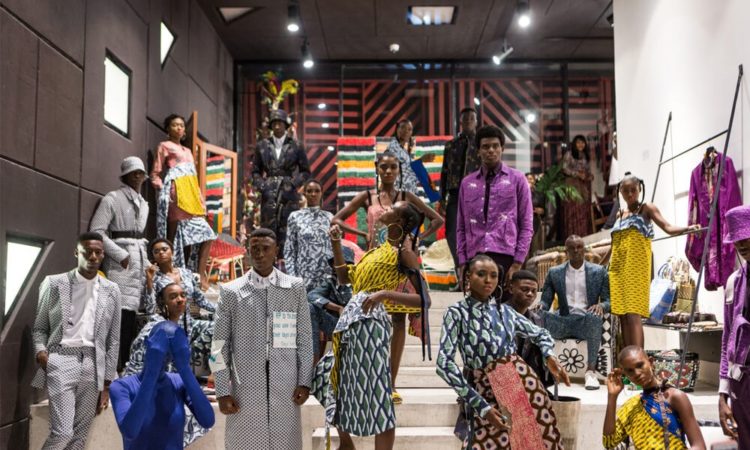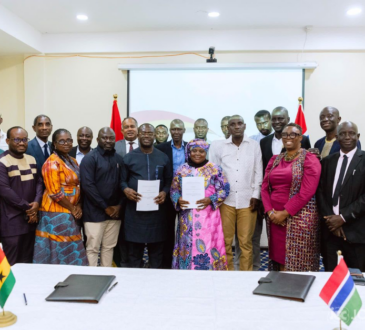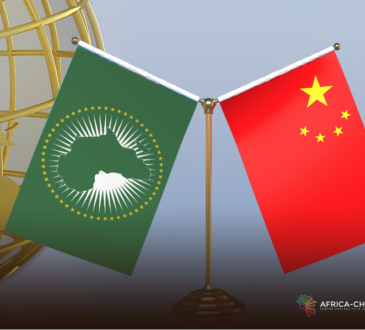
By Deborah Sowah, Brand Marketing Manager, Vlisco (Ghana)
Ghana is one of the most influential cultures in West Africa, but to understand the future of its fashion industry, it is important to know its past and the nuances of its present.
Every nation has their preferred fabrics, shapes and silhouettes. Historically, for some groups in Ghana, the gonja and kente cloths are the textiles that hold significance. Originally worn by royalty, kente cloth is now a marker of tradition and is used for special occasions like weddings, as well as being a source of inspiration for contemporary designers like Sheelah Garbrah and the late Virgil Abloh.
Inextricably linked to cloth is the integral role played by tailors and designers in Ghana’s fashion industry. Put simply, Ghana’s artisans and creatives are some of the most highly skilled and resourceful in the world. This is because, many learn and develop a wide range of skills, including design, pattern making, beading, weaving, tailoring and much more. Indeed, there is little distinction made between tailors and designers, so most people learn and develop skills across both disciplines.
Understanding the challenges faced by the Ghanaian fashion industry
Tailors and designers represent the foundations upon which the Ghanaian fashion industry can grow and prosper. However, despite their talents and skills, they face stiff competition, not only from their peers, but from second-hand clothes imported from other countries.
According to the Tony Blair Institute For Global Change, Ghana received approximately $180 million in used clothing imports in 2020. Accra’s Kantamanto market is the biggest second-hand market in West Africa and approximately 100 containers, holding around 15 million items, are unpacked every week.
The volume and price of second-hand clothing can negatively impact the demand for local design talent. During difficult times, people are more likely to buy cheaper clothing from second-hand merchants than pay for higher-quality garments from designers and tailors.
Along with the economic impact, the second-hand clothing industry also has a negative impact on the environment. With such a large scale of second-hand imports, some clothing eventually end up as waste. According to Plastic Soup, unusable clothing lands in sewers which washes up on beaches and some are incinerated.
How industry can help equip Ghanaian talent with the skills they need to grow
Against this challenging backdrop, for the next generation of Ghanaian design and fashion talent to prosper, it’s imperative that they’re equipped with the skills needed to flourish.
Thankfully, there are many resources at home and abroad for Ghanaian talents to learn and cultivate their craft. And, in our opinion, it’s vital that established individuals and organisations across the fashion and textiles industries play their part.
At Vlisco, we’ve sought to do this through our Vlisco Fashion Fund, supporting emerging designers and tailors in the process of establishing their careers in the fashion industry. The fashion fund helps participants by sharing knowledge, expertise, access to an expanded network and more.
The importance of such mentorship schemes cannot be overstated. Some fashion designers are creative but may struggle with the practicalities of running a business, such as marketing, accounting, website development and more. Others may want more guidance on fashion techniques such as corsetry, embroidery and alternative skills. Regardless of which side people fall, mentorship can help bridge the gap between the creativity needed for fashion and the know-how needed to sustain a business.
With better understanding of their craft and commercial realities, designers and tailors can offer a better and wider range of services to attract more customers. – even from other parts of the world.
Deladem Mideko, founder of Maison Midekor and 2022 Vlisco Fashion fund winner, is doing just that and more. The Ghanaian designer plans to expand her brand in French countries and train the less privileged in order to provide them with a means of employment.
Final thoughts
The future of the Ghanaian fashion industry is bright. Ghanaian designers and tailors are exceptionally talented in making and designing beautiful garments. However, ensuring these collective talents are harnessed to truly drive the growth of the Ghanaian fashion industry, and stimulate domestic and international demand, will take a concerted effort.
Crucially, we need to see industry playing a greater role. Let’s face it, there’s more than enough expertise to go around, we’re calling on our partners across the fashion, design and financial sector to think about the roles they can play. Whether it’s knowledge sharing and mentorship on topics as diverse as entrepreneurship and networking, or access to resources, such supports, make the difference in helping the next generation grow their businesses and reach new audiences.







